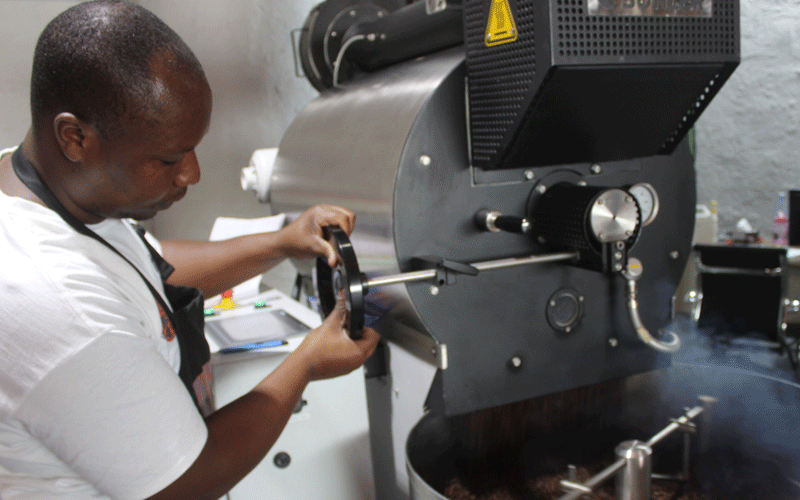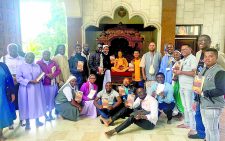Offering Kenya a taste of the Ethiopian coffee

Harriet James @harriet86jim
From the moment you enter Tomoca Coffee House, the first thing that hits you is the sweet aroma of brewing coffee.
The clear glass makes it possible for you to see what’s happening; a small factory inside where clients get to understand and be sensitised on the value of coffee.
“There are many who roast coffee away from their restaurants, but we opted to have our factories here.
We take our clients through the whole process: from roasting to the point where they actually consume it,” explains 36-year-old Amir Yusuf, the MD of Tomoca.
Since he introduced it, most clients who come into the restaurant love to watch the process, which makes them appreciate the product. They also get to watch the packaging process, something other coffee houses do in warehouses.
“For the last four years, I wanted to do this as I was surprised at how much people were charged for coffee.
There are trailblazers such as Java who have changed the industry completely, but I’ve noticed that Kenyans love tea in the same way Ethiopians love coffee. I want to introduce them to the culture of loving coffee too,” says Amir
Live tasting
For a long time, coffee has been growing in the forest of Ethiopia’s southwestern highlands.

Though endowed with a rich diversity of coffee, Ethiopia is the motherland of Arabica coffee, which is rich in flavour and aroma.
This is mainly attributed to the geographical composition that entails temperature, soil, altitude, rainfall, soil as well as ecology in the country making it suitable for coffee growing.
In addition, the drink is vital and heavily ingrained in the Ethiopian culture that it appears in so many aspects of their life such as food, politics as well as interpersonal relationships.
So ingrained it is that in some villages, it is actually deemed as the most significant social occasion, and it is also available at an affordable price. It is such a culture of coffee that Amir desires to introduce through his coffee house.
“Everything is centered on coffee in Eritrea and Ethiopia. You meet over coffee, talk politics and business over it. I saw an opportunity in Kenya with it.
When you go to Addis, you’ll see lots of coffee shops and I always wondered how they made money,” observes the Eritrean-born entrepreneur, who saw the benefits the private sector in the country provides and the purchasing power of the population.
Another thing that he noticed about Kenya and coffee is the fact that while most venues have coffee houses in place, there is a mismatch in how they prepare it.
This is why they introduced live tastings to ensure Kenyans learn the correct way of preparing coffee.
Ingrained culture
“The coffee most Kenyans take has a little bit of milk with a little bit of coffee: that’s pretty much a lot of milk. For us, we don’t want to drown out the taste of coffee.
We want people to understand what’s a macchiato, or what’s a latte, because they are actually different drinks, but Kenyans prepare them in the same manner.
There is difference when it comes to the form and the amount of milk that’s put in there and that’s what we are trying to enlighten them on,” explains the law graduate.
When it comes to the price of coffee, Amir feels that Kenyan pay way too much for the drink.
With his coffee house, he is trying to make it affordable to Kenyans so that they can appreciate the drink just like his fellow brothers and sisters in Ethiopia.
“I was very surprised that people in Kenya pay Sh300 for coffee. Here, we start at Sh150,” he says.
As one of the leading coffee brands in Ethiopia, Tomoca has been in existence for 66 years.
Italian expatriates owned the original business, but sold it to an Ethiopian family upon leaving the country. Amir’s business partner Wondewossen Meshasha, the Chief Global Operations Officer, is the son of this Ethiopian who sought to ensure coffee culture on which the restaurant was founded, never dies.
“When they first took the company, they weren’t actually charging for coffee.
It was a place where people bought wholesale coffee and while they were waiting for it, they would just drink for free,” Amir says.












